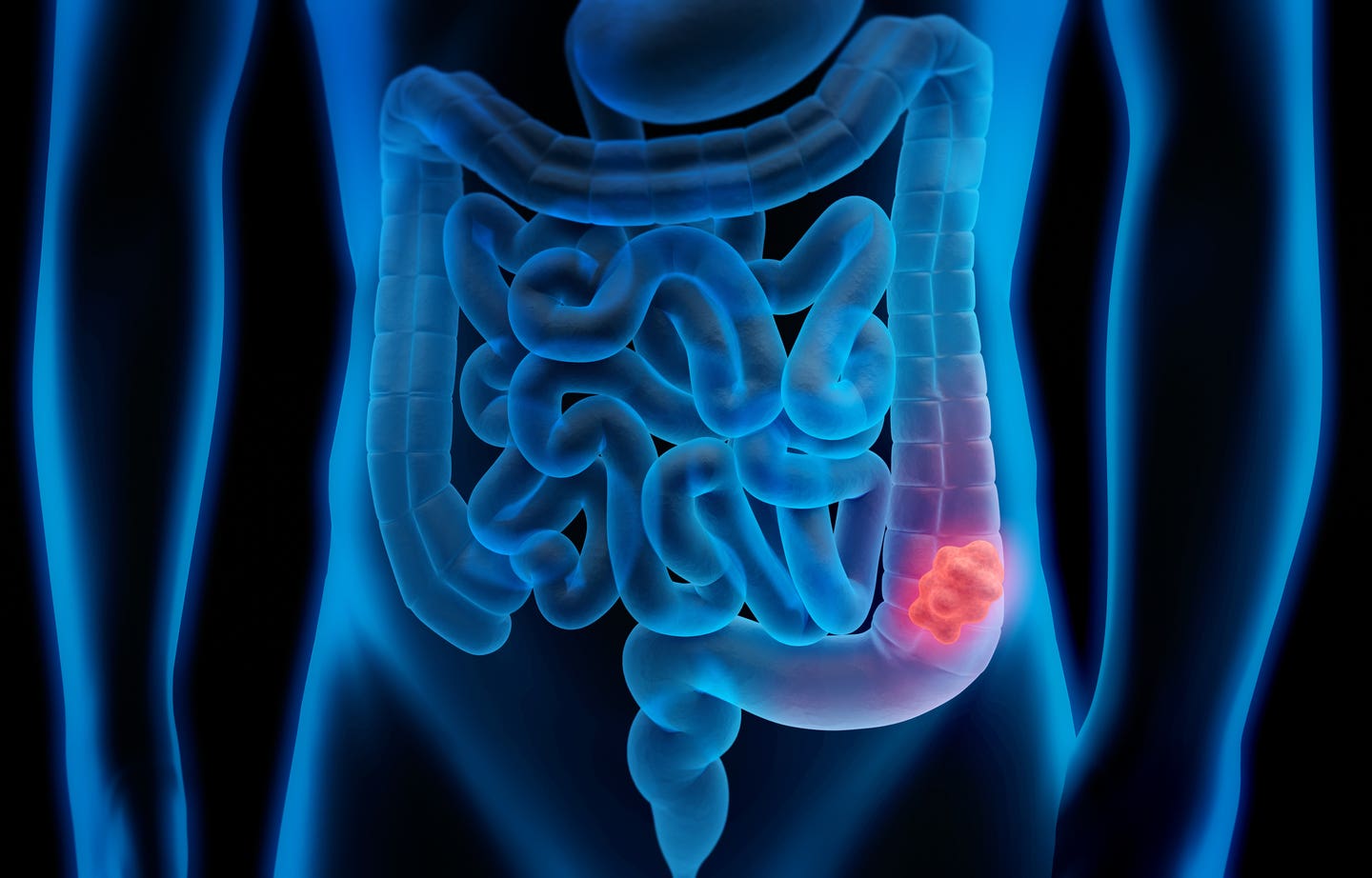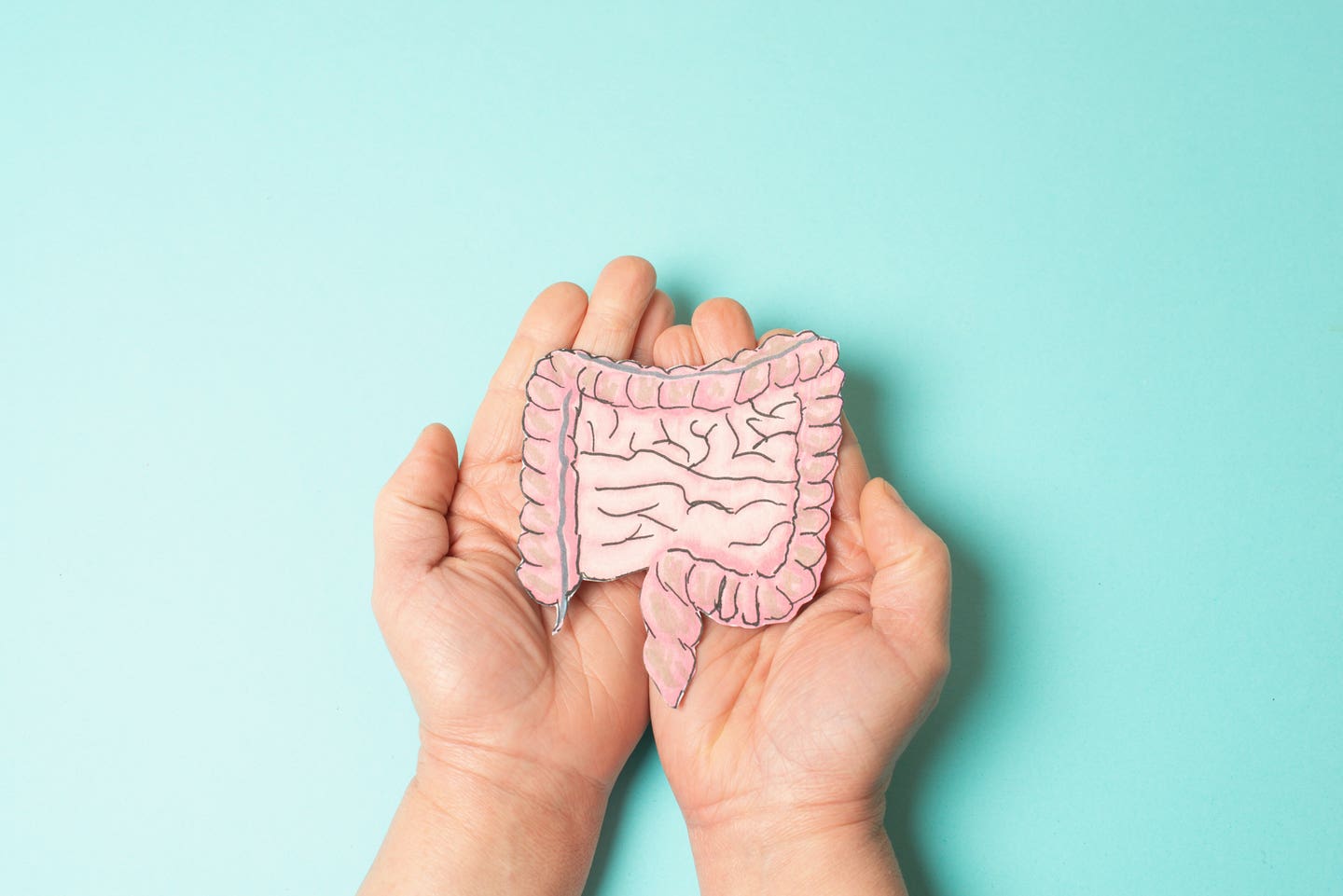What is Colorectal Cancer?
Colorectal cancer is cancer that develops in either the colon, a five-foot stretch of your large intestine, or the rectum, the piece that connects your colon to your anus and…

Medical illustration of Colorectal Cancer – Polyp
Colorectal cancer is cancer that develops in either the colon, a five-foot stretch of your large intestine, or the rectum, the piece that connects your colon to your anus and holds your waste, called stool, before it is expelled.
Colorectal cancer usually starts as a polyp, small grapelike overgrowths in the tissue lining the colon or rectum. Polyps are not cancer, but some can grow into cancer over time. Some polyps, adenomas, which begin in the gland cells that line the intestine, are considered pre-cancerous growths.
What do you really know about your colon? The American Cancer Society has a short quiz to test your knowledge on six common beliefs about colorectal cancer.
The American Cancer Society estimates that there will be about 107,320 new cases of colon cancer (54,510 in men and 52,810 in women) and about 46,950 new cases of rectal cancer (27,950 in men and 19,000 in women) diagnosed in the US in 2025.
Thanks to screening and increased awareness in lifestyle choices, the rate of people being diagnosed with colon or rectal cancer has dropped; in fact, from 2012 to 2021, incidence rates dropped by about 1% each year. This downward trend is mostly in older adults. In people under 50 years of age, rates have increased by 2.4% per year from 2012 to 2021.
Overall, your lifetime risk of developing colorectal cancer is about one in 24 if you’re a man, and one in 26 if you’re a woman.
In the United States, colorectal cancer is the second most common cause of cancer deaths when numbers for men and women are combined, and it’s expected to cause about 52,900 deaths during 2025.
Who gets it? There are many factors determining your risk of developing colorectal cancer. Some you can’t change - your age, your family history, Type 2 diabetes and chronic Inflammatory bowel disease such as Crohn's disease or ulcerative colitis.
Black Americans have the highest death rate for many cancers, including breast and prostate, the two most common cancers in men and women. Black people have lower survival than white people for almost every cancer type. Learn more about these trends in the latest edition of the American Cancer Society’s Cancer Statistics for African Americans.
Your racial and ethnic background can also impact your risk. People of American Indian and Alaska Native descent have the highest rates of colorectal cancer in the US, followed by Black men and women. Jews of Eastern European descent (Ashkenazi Jews) have one of the highest colorectal cancer risks of any ethnic group in the world.
Other risk factors are lifestyle related, and they account for more than half of all colorectal cancers. If you are carrying excess weight, your risk of developing and dying from colorectal cancer is higher. especially for men. A iet that's heavy in red meat and processed meats such as hot dogs and some lunch meats raises your colorectal cancer risk. Frying, broiling, or grilling them also creates chemicals that might raise your cancer risk. Smoking and alcohol use also affect your risk. Long time smokers are more likely to develop and die from colorectal cancer than people who don't smoke. Even light-to-moderate alcohol intake has been associated with some risk.
Talk to your doctor or healthcare provider about your risk factors, they can advise you on any lifestyle changes you should make and determine a screening schedule. Understanding your risk and taking preventative action can save your life. If colorectal cancer is found early, before it has spread, about 91 out of 100 people are still doing well five years later, with many cancer free.





